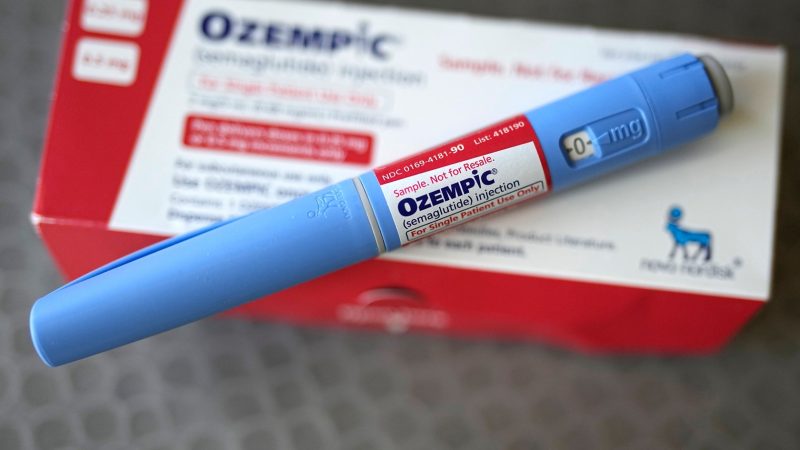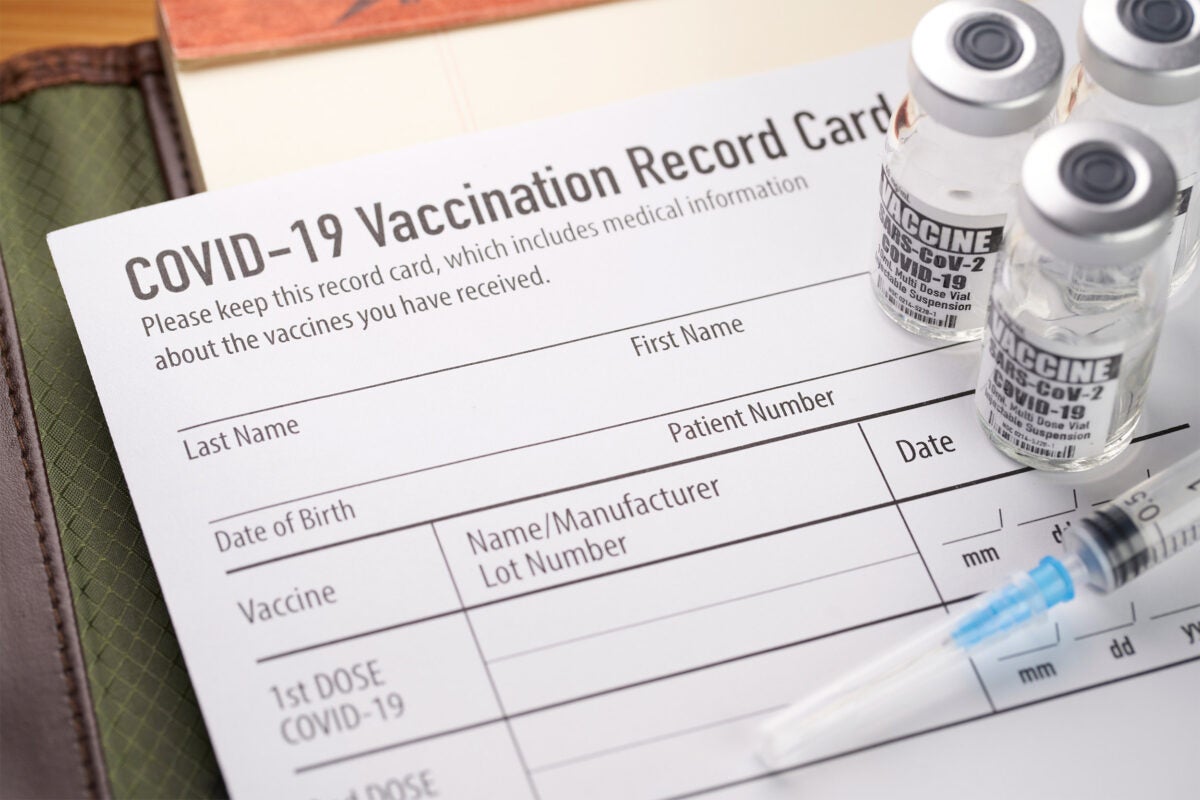Health
Examining new weight-loss drugs, pediatric bariatric patients
AP Photo/David J. Phillip
Researcher says study found variation in practices, discusses safety concerns overall for younger users
Drugs like Ozempic and Wegovy, known as GLP-1 receptor agonists, have surged in popularity as treatment for weight loss and management. The increase involves not only adults but also adolescents, along with bariatric surgery patients. Michael Kochis, Ed.M. ’19, M.D. ’20, a resident in the Department of Surgery at Massachusetts General Hospital, realized that little research had been done regarding the use of these drugs on adolescent bariatric surgery patients. Kochis and his team examined practice patterns across the nation, and he spoke to the Gazette about the group’s recent study as well as safety issues for youth generally. This interview has been edited for length and clarity.
Have these drugs been found to be safe, both for adults and adolescents?
There is increasing evidence that these can be safely used, especially in adults but more recently in pediatrics. Studies happen before drugs get licensed to make sure that they’re safe enough to go to market, and that factors into FDA approval. After approval, they’re still monitored.
And I think it’s important to note that safety can mean different things to different people. And so while there are no glaring problems that would withdraw these drugs from the market — which has happened in the past with other medications related to obesity — there are side effects that aren’t well-tolerated by everyone, like nausea or feeling like you’re full all the time. They’re not a “cure all” drug with all benefits and no risk.
For pediatrics specifically, there’s far less data on their use in children and young adults because they’re not as frequently prescribed in the first place. It’s harder to get studies where we can collect tons of data on adolescents.
One of the areas that this research is highlighting is the fact that these drugs are being used in the pediatric population. It’s really important that we collect data to make sure there’s nothing different about the drugs’ use in this population, compared to what we know from adults.
For your study, why did you choose to look at bariatric surgery patients as opposed to just general adolescents who might be using these drugs?
Our research group has a specialty in bariatric surgery. We’re hearing more and more and more about these drugs and that sparked our interest.
But secondly, the use of these medications in the context of pediatric bariatric surgery has a few unique considerations beyond safety. Those relate to the many physiologic changes that happen as a result of bariatric surgery, not just to weight loss.
The surgeries themselves change the body’s metabolism and hormone balances. It’s unknown how the changes from surgery might relate to the hormone balances that these medications affect. And so the questions are relevant before surgery, during surgery, and after surgery in regard to the effects of these medications on patients. We asked questions in all three domains.
“More likely than not, you’re doing things differently than your colleagues. So why don’t we start talking about it and sharing our experiences to try to come to the best practices?”
Michael Kochis
What did your study find in terms of the usage of these medications?
There were two really big-picture findings. One is that, yes, these medications are being used for adolescents with obesity who are undergoing bariatric surgery. So essentially the cat’s out of the bag, it’s already happening.
And then the second finding is that there’s a lot of uncertainty and variation in the exact practice patterns across institutions. There’s a recognition that we’re doing it this way at our place, and they’re doing it that way at that place. And no one really knows what the right answer or the best answer is. We’re in uncharted territories.
That creates an opportunity for deliberate convening amongst these different groups and data-sharing so we can try to establish best practices. That can be based on consensus regarding what experts think the best approach is or hopefully — in time — an evidence-based approach. But that might take time.
What are the benefits and potential dangers of realizing there’s so much variation?
I think overall, it’s sparking discussion and increasing awareness. A lot of these pediatric bariatric centers have to be really good at what they do. We specifically looked at the larger centers throughout the country, which are often reference points for entire regions.
My hunch is that people come to their practices based on what they think is going to be helpful for their patients, not realizing that other places do it differently. This study highlights that and will hopefully spark a discussion so different providers will start talking with their peers and asking questions.
More likely than not, you’re doing things differently than your colleagues. So why don’t we start talking about it and sharing our experiences to try to come to the best practices?
The problem with this is there might be the recognition that one approach is better than others. If you have variety, the implication is that there might be variations in the quality of care. Once we do have a better understanding of optimal use of these medications in the pre-op, peri-op, and post-op setting, there will be opportunities for standardization of care.
What do we still need to learn?
Above all, there’s a need for more data. I also hope this highlighted an opportunity for different institutions to come together and collaborate. We’re working on both of those things.
Pediatric surgery in general is relatively small; fortunately, a lot of times kids and adolescents don’t need operations as frequently as adults do. So it’s a great space for collaboration and gathering knowledge.
There are a couple collaboratives of pediatric hospitals and surgeon networks throughout the country; we at Mass General are currently working to establish another collaborative specifically focused on pediatric metabolic and bariatric surgery. We’re working on creating databases where we can pool all of our data from our separate institutions — about how we treat these patients before they’re getting surgery, what we do during the surgical context, and then how they do after surgery — to get on the same page about what data we’re collecting and how we can assess it in the long term.
We can ask some really good research questions that we would never be able to get the answers to (with as much level of detail and discernment) if any one of our institutions did that exact same study alone. More efforts like that will be helpful in providing the high-level evidence we need to make informed decisions about the optimal care for patients.
Is there anything that parents should be aware of when considering these medications for their children?
I’m glad you brought that up. One of the findings from the study is that some providers’ practices — in the absence of strict guidelines or criteria — were informed partially by patients or families.
The use of these medications should be a multidisciplinary discussion with the patient’s pediatrician, primary care doctor, obesity medicine physician, and potentially with a surgeon, if that’s applicable.
Every patient has unique circumstances. So I would say to parents that if they see advertisements for this on the news or see these medications on social media, it’s great that they can be informed about what’s out there. But then bring that background knowledge to an informed discussion with your doctors. Understand that just because you heard some celebrities have used them and had certain experiences it does not mean that they are for everybody or should be applied in your circumstance. You can really only discern that based on a comprehensive discussion with your doctors.





